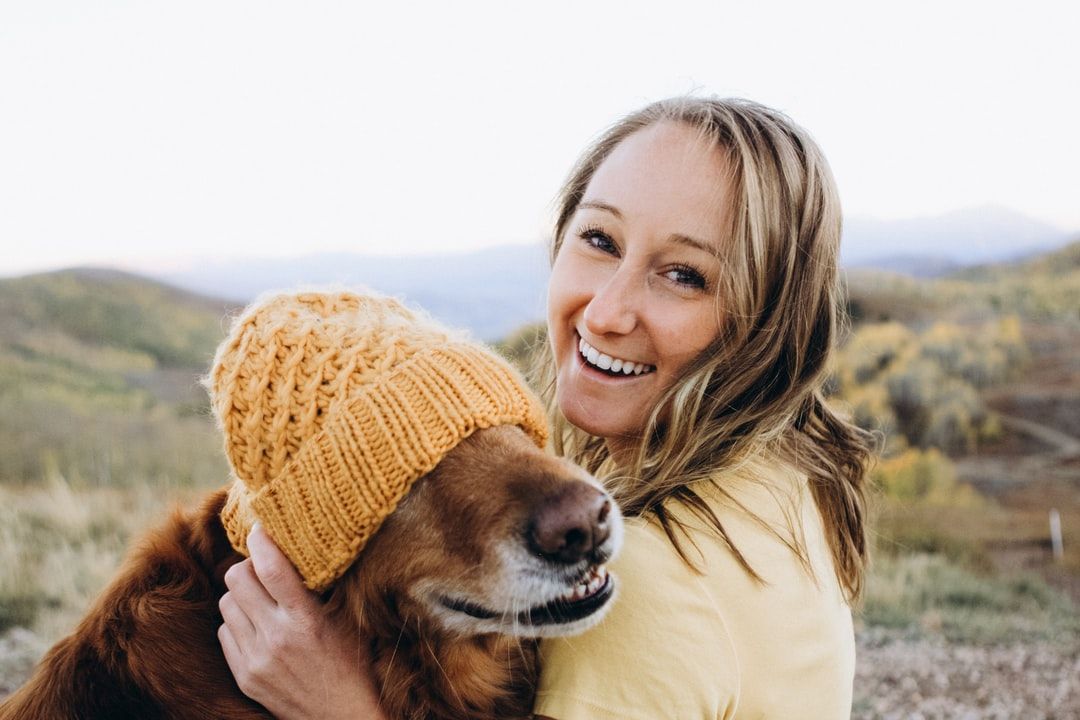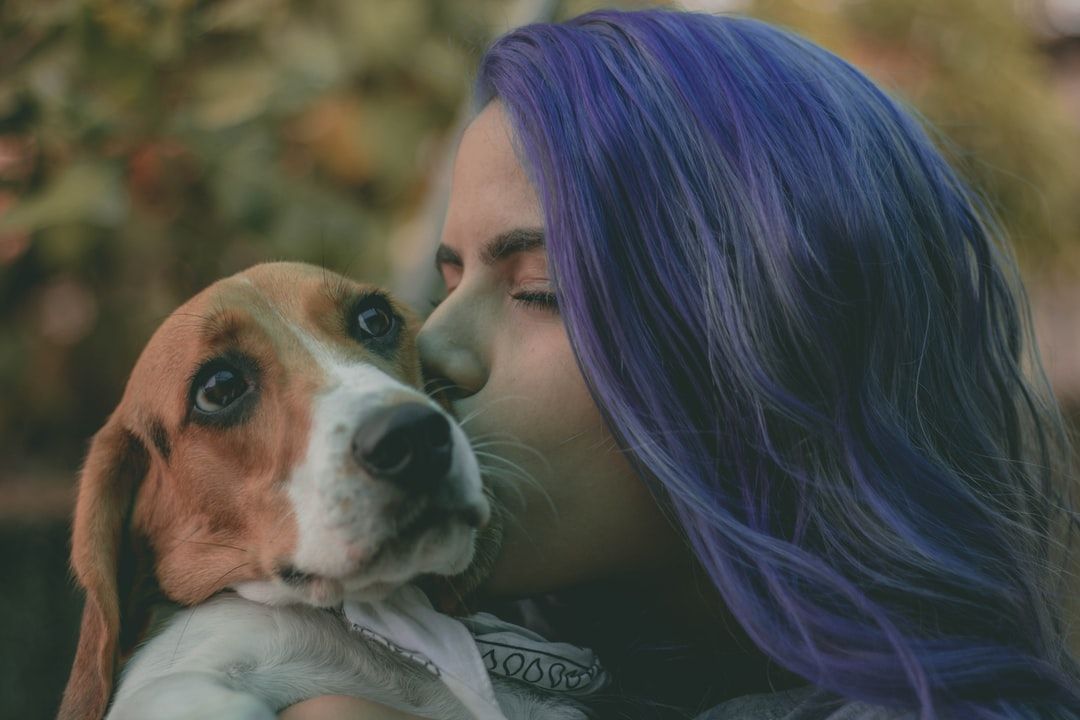When clients are struggling with their dog’s behavioural issues, the relationship often becomes strained. The more frustrated they get, the greater the divide between them and their dog. There is a breakdown in communication and all focus is placed on their dog’s negative attributes. When clients turn to us for our help, it can be hard to know where to start. However, I have learned that the relationship is everything, so the best way forward is helping the client and their dog reconnect.
How can you do that?
Many dog guardians still believe that you have to be firm and stern with your dog to establish yourself as the alpha or so called “pack leader”. We know that such theories have been scientifically debunked and yet the belief that dogs are obsessed with hierarchy, is still deeply entrenched. Many still can’t relinquish the belief that their dog wants to be the boss and that their negative behaviour is a sign of disrespect. This influences how guardians respond to their dog’s behaviour and it can be very difficult for us to witness the fallout.
How can you do that?
Many dog guardians still believe that you have to be firm and stern with your dog to establish yourself as the alpha or so called “pack leader”. We know that such theories have been scientifically debunked and yet the belief that dogs are obsessed with hierarchy, is still deeply entrenched. Many still can’t relinquish the belief that their dog wants to be the boss and that their negative behaviour is a sign of disrespect. This influences how guardians respond to their dog’s behaviour and it can be very difficult for us to witness the fallout.
Clients often become verbally and even physically aggressive, and then the client is surprised when the dog’s behaviour doesn’t improve.
The more frustrated the client becomes, the more displacement behaviour the dog displays, in order to ease the tension. Of course, the client doesn’t recognise this and just sees such behaviour as stubbornness or naughtiness. In order to help the client reconnect with their dog, they first need to get their emotions under control and take charge of their own behavioural responses, before addressing their dog’s.
This requires us to be honest but tactful about how their emotional state is affecting their training as well as their dog’s responses. We can teach them how to remain calm and how to recognise that their dog is confused. We can also show them how to keep training sessions fun and short, so that no one becomes frustrated.
The more frustrated the client becomes, the more displacement behaviour the dog displays, in order to ease the tension. Of course, the client doesn’t recognise this and just sees such behaviour as stubbornness or naughtiness. In order to help the client reconnect with their dog, they first need to get their emotions under control and take charge of their own behavioural responses, before addressing their dog’s.
This requires us to be honest but tactful about how their emotional state is affecting their training as well as their dog’s responses. We can teach them how to remain calm and how to recognise that their dog is confused. We can also show them how to keep training sessions fun and short, so that no one becomes frustrated.
When a relationship becomes strained, it is usually due to that fact that communication has broken down. Many will claim that they couldn’t be any clearer in their communication, so when the dog behaves negatively, they feel they are justified in resorting to more punitive methods. The problem is, is that the communication likely didn’t take place. It is all too common for dog guardians to forget they are living with another species that does not rely on verbal language like we do. To illustrate, saying “no” does not automatically teach your dog that chewing the table is a negative behaviour. In fact, saying no doesn’t provide the dog with any information. While dogs are sensitive to our tone of voice and emotional state, they rarely understand the reasons behind it.

Mankind also has a habit of projecting human emotions onto animals, which can be harmless, unless we are dealing with secondary emotions, such as guilt or resentment. Believing dogs are capable of such emotions, can mislead clients to conclude that their dog is deserving of punishment, which only weakens the relationship further. Therefore, it's important to educate clients on their dog’s emotions and why it's prudent not to project our own emotions on to them.
Understanding canine emotions and improving the communication between the guardian and their dog is a significant part of helping them reconnect. So, its beneficial to observe the guardian communicating with their dog and determining where there are gaps in their communication. We can then spot any inconsistencies and teach the client how to be clearer with both their verbal language and body language.
Teaching them how to be clearer in what they are asking for, will help them to avoid confusing their dog, which is often the reason dogs disengage in the first place. When clients stop assuming that communication has taken place, they stop jumping to the conclusion that their dog is just naughty!
Despite the fact that we are the ones that have chosen dogs to be members of our family, we certainly put a lot of pressure on them to quickly learn the rules of our alien world.
Sometimes we can expect far too much of the dog and not enough of ourselves. It helps to ask clients how they feel about their dog’s potential and ascertain how this is impacting their dog’s behaviour. We then need to enlighten them about how much their attitude influences their actions towards their dogs. If they conclude that their dog isn’t bright or is just stubborn it gives them a scapegoat from putting effort into their dog’s training.
Sometimes we can expect far too much of the dog and not enough of ourselves. It helps to ask clients how they feel about their dog’s potential and ascertain how this is impacting their dog’s behaviour. We then need to enlighten them about how much their attitude influences their actions towards their dogs. If they conclude that their dog isn’t bright or is just stubborn it gives them a scapegoat from putting effort into their dog’s training.
Many clients that seek our expertise, will express that their dog’ behaviour is out of control, so reminding them that they still have control of their attitude and efforts, can empower them. A dog’s behavioural progress is very much dependent on the amount of effort their guardians put into their training.
Dogs don’t come pre-programmed, neither can they learn or practice skills without us providing opportunities and a safe learning environment to do so. Their potential is limited by the belief we have in them. Once a client aligns their expectations with reality, they will no longer be disappointed in their dog.
Dogs don’t come pre-programmed, neither can they learn or practice skills without us providing opportunities and a safe learning environment to do so. Their potential is limited by the belief we have in them. Once a client aligns their expectations with reality, they will no longer be disappointed in their dog.

Finally, to truly help a guardian reconnect with their dog, we have to remind them of why they chose their dog and what they love most about them. Love moves us to be patient and kind and to believe the very best of each other, which is all that is needed to keep that connection strong.
Start Your FREE Skill-Hub Trial Today
Commitment Free 3 Day Access
Canine Principles' Skill-Hub allows unlimited* access to ALL self-study courses, workshops & webinars.
*Requires Monthly Subscription. See Skill-Hub Subscription Page For Details.

